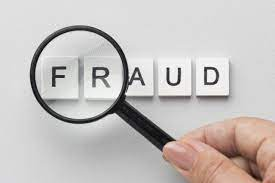Why are restrictions recorded on a property’s title?

Restrictions are a common way of protecting both buyer and seller interests and ensuring that certain conditions are met before a sale goes through. Below we briefly explore some of the key ways this is done and why property owners may choose to apply restrictions on a property’s title.
The right to sell
In certain circumstances, the sale of a property may be protected by a property management company. If you’re looking to buy such a property, the seller will first need to apply for permission to sell. While situations such as this mean the seller should apply for approval as soon as possible to avoid any potential delays, they are rather uncommon.
Form L undertakings
In some cases, a Certificate of Compliance may be required, in order to remove a Form L restriction. This is commonly used in situations where the owner of a property has reached an agreement with a third party that they will undertake something specific. With such a restriction in place, the owner is unable to sell the property unless the certificate is obtained, which signifies that the undertaking has been satisfied. A conveyancing firm such as Parachute Law can provide guidance on property restrictions and conveyancing.

Combating fraud
A form ll land registry restriction is another fairly common restriction applied to properties. This is done in order to combat potential fraud. This particular restriction prevents potential criminals from selling on your property without you being aware of it. As such, it’s a good thing to have in place.

If, for whatever reason, you choose to remove the form ll land registry restriction from your property, you can do so by applying to the Land Registry. A flat fee of around £260 paid to a solicitor will generally take care of this for you.
Other restrictions
Other common restrictions may include changing deeds from joint tenants to tenants in common, a restriction against bankrupt buyers, and more. Most restrictions can quite easily be removed with the help of a qualified property specialist.
A conveyancing lawyer or solicitor specialising in property will be able to advise you and walk you through any restrictions your property or the home you’re looking to buy may have. Remember these restrictions are in place to protect both buyers and sellers of prospective properties, so do consider whether you really want to have them removed before contacting your legal adviser.
Summarising restrictions
Restrictions may seem like an extra burden, but they can be helpful in protecting your property assets. The Land Registration Act 1925 was put in place to protect third-party interests and ensure you don’t lose out as either a buyer or a seller.
You can easily find out what, if any, restrictions apply to your property by reviewing Section B of your home’s title deed. If in doubt, HM Land Registry can be contacted by both private individuals or via a qualified conveyancing lawyer or solicitor.
In summary, restrictions are a common occurrence when it comes to properties and are generally put in place to protect both the buyer and the seller. However, if ever you do come across one you wish to change or remove, a qualified specialist can easily advise you and contact the Land Registry on your behalf.



